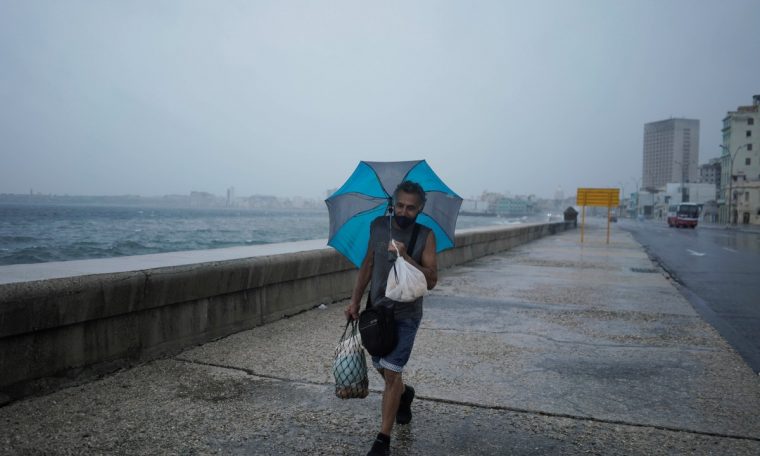
Residents in high-risk areas left their homes and lined up to stock up on supplies before the arrival of Hurricane Ida, which was described as “extremely dangerous.” The event should touch the land of the south America After arriving west of Cuba this weekend.
The US National Weather Service is predicting a “potentially deadly hurricane wave” when the storm hits the Louisiana and Mississippi coasts, warning of “catastrophic wind damage” and urging people in affected areas to consult officials’ locations does.
“Now is the time to act. Hurricane Ida is predicted to hit land as a Category 4 hurricane,” the National Weather Service’s New Orleans office warned in a tweet.
It is the second highest on the Saffir–Simpson wind hurricane scale, with a minimum force of 209 kph.
Louisiana declared a state of emergency in anticipation of a hurricane that will hit the United States on Sunday, 16 years after devastating Hurricane Katrina, which flooded 80% of New Orleans and killed more than 1,800 people.
Officials have already ordered mandatory evacuations outside protected areas of New Orleans and flood-prone coastal cities such as Grand Isle.
“People are packing up and leaving now,” Grand Isle Police Chief Scooter Resweber told local media.
Declaration of state of emergency, approved by the President Joe Biden, will channel supplemental federal funds and aid to the southern state to strengthen its emergency preparedness and response efforts.
The storm hit the coast with Category 1 in western Cuba on Friday night, with maximum sustained winds near 128 kph.
Hurricane Ida approaches Cuba – Photo: Reuters
Ida hit the island in Pinar del Río province, the current epicenter of the island’s coronavirus pandemic.
On Twitter, Cuba’s health minister, Jose ngel Portal, warned this Friday about a “double danger”: a meteorological phenomenon in the midst of the worst moment of the pandemic.
As a precaution, more than 10,000 people were evacuated and power was cut before the storm. In Havana, public transport was suspended at 12:00.
The NHC said the storm is expected to bring “considerable” rain and flooding from southeast Louisiana to the coast of Mississippi and Alabama.
Last week, a rare tropical storm struck the northeast coast of the United States, leaving thousands of residents without power, uprooting trees and causing record rainfall.

VIDEO: Tropical Storm Henry hits the coast in the northeast of the US
Scientists have warned of an increase in the number of strong cyclones as the ocean surface is warming due to climate change, threatening the world’s coastal communities.



